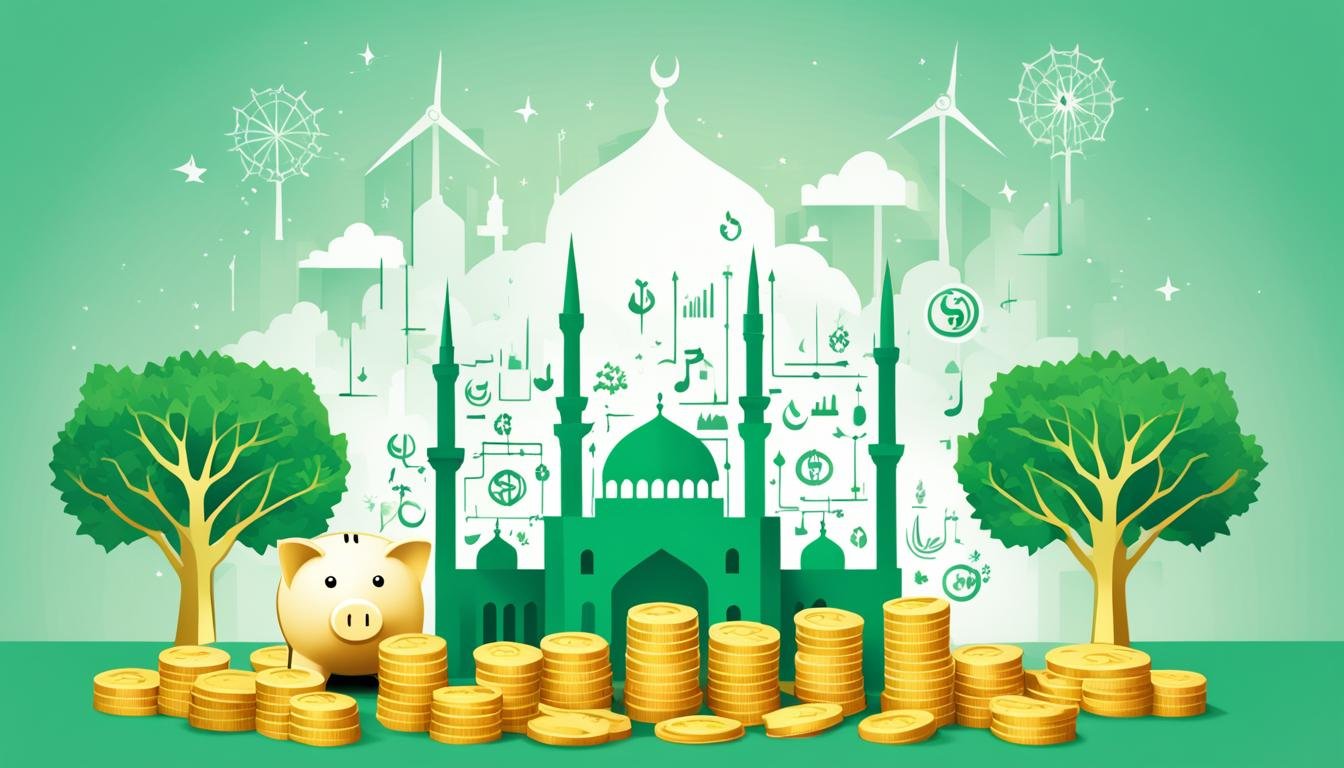Ethical Investment in Islamic Finance: Aligning investments with Islamic values
What if your financial choices could impact not just your wealth but also your community and the world around you? Ethical investment in Islamic finance invites us to reconsider the way we view our investments, blending financial gain with ethical and social responsibility. This approach, rooted in Islamic values, emphasizes that investments must be both profitable and morally sound, aligning with principles that guide the lives of millions. As responsible investing continues to gain traction, understanding how Sharia-compliance can be integrated into our financial decisions becomes increasingly crucial.
Through the lens of Islamic finance, we delve into a practice that disrupts conventional views on investing—encouraging practices like risk-sharing and profit-sharing while avoiding riba, or interest, which is considered a major sin. This article explores how ethical investment can lead us towards not only personal wealth but also societal welfare.
Understanding Ethical Investment in Islamic Finance
Ethical investment in Islamic finance revolves around financial practices that comply with Islamic finance principles, which are rooted in the teachings of the Qur’an and Sunnah. Investors engage in ethical investing to promote social good, steering clear of investments tied to unethical practices. Navigating between halal (permissible) and haram (forbidden) investments is essential in this framework.
Making informed investment choices involves recognizing the societal implications of financial decisions. This approach aligns with socially responsible investing, encouraging investors to consider the moral and ethical ramifications of their actions. Islamic finance emphasizes risk-sharing and seeks to create a just economic environment that benefits society as a whole.
Islam places a high value on ethical standards, encouraging investors to engage in ventures that not only promise financial returns but also foster social and economic welfare. Understanding the principles that guide ethical investments allows for effective decision-making and contributes to the overall goal of nurturing an economy that prioritizes integrity and community well-being.
The Importance of Halo Income in Ethical Investments
Halal income represents a key concept in ethical investments, as it refers to earnings generated from practices that adhere to Islamic teachings. This type of income becomes essential for investors who wish to align their financial growth with their spiritual values. Engaging in halal income ensures that financial benefits originate from ethical investment opportunities while avoiding interest-based or speculative ventures.
Investors focused on halal income actively participate in socially responsible investing, which prioritizes ethical considerations in investment choices. This focus fosters community development and promotes sustainable practices, ultimately contributing to a more equitable financial ecosystem. The ongoing growth in Shariah-compliant assets reinforces the significance of halal income, with global assets in this sector reportedly increasing to CAD 60.4 billion as of February 2023.
By ensuring that their investments are ethically sound, investors help cultivate a culture that values responsible investment principles. Prioritizing halal income can be particularly advantageous, fostering a financially rewarding yet principled approach to investing that resonates with the tenets of Islamic finance.
Key Principles of Islamic Finance
The landscape of Islamic finance is guided by fundamental principles that ensure investments align with ethical standards while promoting social welfare. Understanding these principles aids investors in making informed decisions that adhere to Sharia-compliance, thereby fostering a fair and just financial system.
Shariah Compliance
At the core of Islamic finance principles lies Sharia-compliance, which mandates that all financial activities comply with Islamic law. This encompasses avoiding unethical practices and ensuring that investment opportunities align with societal values. By adhering to these principles, financial transactions promote fairness and contribute positively to the community.
Prohibition of Riba (Interest)
The prohibition of riba, or interest, is a cornerstone of Islamic finance. Riba refers to the practice of accruing profit without any associated risk or return on value, often leading to exploitation. By eliminating the prohibition of riba, Islamic finance advocates for a more equitable distribution of wealth and encourages financial practices that benefit all parties involved.
Asset-Based Transactions
Islamic finance emphasizes asset-based transactions, ensuring that investments are linked to tangible assets. This approach promotes real economic activity by grounding returns in actual value generation rather than mere speculative endeavors. Such transactions align closely with the ethical investment goals of fostering sustainable development and promoting the welfare of society.
Ethical Investment Opportunities in Islamic Finance
Investors looking to align their financial activities with Islamic principles find numerous ethical investment opportunities within Islamic finance. These options not only adhere to Shariah law but also promote social responsibility and community development. Investing in Islamic banking and related financial products is one way to engage in this ethical approach.
Islamic Banking and Financial Products
Islamic banking has evolved to offer a range of financial products designed for ethical investors. These offerings include:
- Islamic savings accounts that provide profit-sharing rather than interest
- Shariah-compliant investment funds
- Takaful, or Islamic insurance, which operates on cooperative principles
These products allow investors to explore halal investments that generate income ethically, avoiding riba while contributing to their financial goals. Many financial institutions carefully screen their assets to ensure compliance with Islamic laws, ensuring all investments are aligned with ethical principles.
Real Estate Investments
Real estate presents a solid avenue for halal investments, offering tangible assets that align with Islamic values. Investors can generate halal income through:
- Property development projects that meet community needs
- Rental income from commercial spaces compliant with Shariah
- Real Estate Investment Trusts (REITs) that focus on ethical practices
These opportunities not only deliver attractive financial returns but also benefit the wider community by promoting affordable housing and supporting local economies. Investing in real estate allows for diversification across asset classes, appealing to those seeking sustainable finance options within Islamic frameworks.
Types of Halal Investments
Halal investments play a crucial role in fostering an ethical investing environment that aligns with Islamic values. A variety of types of halal investments exist, each designed to ensure strict compliance with Sharia law. These investments avoid interest and other prohibited activities, allowing investors to grow their wealth responsibly.
Common options include:
- Ethical Stocks: Companies adhering to Sharia principles offer ethical stocks. These investments stimulate the growth of socially responsible businesses, emphasizing integrity and moral obligation.
- Islamic Mutual Funds: These funds pool resources for broader investments while strictly adhering to the guidelines of Sharia-compliant investments.
- Sukuk: Islamic bonds provide a way to invest in fixed income without resorting to interest practices, aligning well with ethical investing principles.
- Real Estate Investments: This sector includes residential and commercial properties governed by ethical frameworks, promoting not only profit but also community welfare.
- Venture Capital: Investments in socially responsible businesses that align with ethical standards are increasingly popular among those seeking Sharia-compliant investments.
The market for halal investments continually grows, encouraged by a significant increase in Muslim populations, with up to 50% in regions like Africa. The global halal economy, predicted to reach $7.7 trillion by 2025, demonstrates a strong demand for these ethical investing opportunities. Investors increasingly seek Sharia-compliant investments as demonstrated by the staggering $25.9 billion in funding received during the financial year 2022-2023, a growth of 128% year-on-year.
This burgeoning interest reflects a shift toward balancing profitability with ethics. By choosing halal options, investors contribute not only to their financial well-being but also to a fair and just society that fulfills the spirit of Islamic finance.
Implementing Ethical Investment Strategies
Investors focusing on ethical investment strategies in the realm of Islamic finance must prioritize measures that ensure compliance with Sharia principles. A foundational aspect is screening for Shariah compliance, which helps eliminate any investments that conflict with Islamic laws. These screening mechanisms typically disallow sectors related to riba, gambling, or other unethical practices.
Screening for Shariah Compliance
Adopting robust screening processes facilitates the identification of Sharia-compliant investments. This forms a crucial part of maintaining the integrity of the investment portfolio. By thoroughly analyzing the underlying practices of potential investments, investors can align their financial objectives with Islamic ethics, thus reinforcing their commitment to ethical investment strategies.
Transparency and Accountability in Financial Transactions
Ensuring transparency in financial transactions resonates deeply with Islamic values emphasizing fairness and honesty. Investors benefit from clear disclosures, which enhance trust among all parties involved. Accountability measures should be established to enable all stakeholders to easily assess the risks and potential rewards associated with their investments. This transparency not only builds confidence but also encourages ethical financial practices, aligning with the principles of Sharia-compliance.
Challenges in Ethical Investment in Islamic Finance
The landscape of ethical investing, particularly within Islamic finance, presents numerous challenges that can impact both investors and institutions. As interest surges for ethical investment opportunities, a limited range of Sharia-compliant products often restricts choices for potential investors. This scarcity can lead to missed opportunities in a market that, while projected to reach nearly $3 trillion by 2025, remains significantly smaller than the broader ESG investment arena.
A lack of awareness among investors further complicates the scenario. Without sufficient knowledge of the principles underlying Islamic finance, individuals may find it difficult to identify viable ethical investing options. This challenge is exacerbated by the associated complexities in accurately screening investments for compliance with Sharia law. The specialized skillset required for these screenings is comparable to that demanded by ESG investing, yet the resources to educate and train investors on ethical investing in Islamic finance remain insufficient.
Furthermore, the increasing demand for more trained Sharia advisors reflects the growing need for expert guidance. In its current state, many potential investors lack the necessary resources to make informed decisions. Addressing these challenges is essential for fostering wider acceptance and participation in ethical investment practices aligned with Islamic principles. As the industry evolves, creating more educational resources and ensuring greater transparency will help overcome these hurdles.
Prospective Future of Ethical Investments in Islamic Finance
The future of ethical investments in Islamic finance holds great promise, driven by a growing awareness of socially responsible investing. The shift towards sustainable financial practices is reshaping investment landscapes, positioning Islamic finance to play a vital role in this transformation. An increasing number of investors are seeking opportunities that align with their ethical values, particularly through vehicles like Sukuk, which is a Sharia-compliant financial instrument.
The sukuk market is gaining traction beyond traditional Islamic communities, offering a pathway into financial markets for investors who prioritize ethical investing. Notably, platforms like Velexa are exploring the integration of customized Sukuk offerings, enhancing accessibility to these investment options. This innovation fosters a diversification of portfolios across asset classes, sectors, and geographies, engaging investors who are keen on balancing profit with purpose.
The Islamic finance growth indicates a burgeoning demand for sustainable financial instruments, as evidenced by the surge in green and sustainability sukuk issuances. In 2022, these reached $9.4 billion, and projections suggest they will exceed $10 billion by the third quarter of 2023. Notably, the United Arab Emirates accounted for 40% of total regional sustainable sukuk issuances, highlighting significant regional leadership.
The Islamic finance industry, valued at $4.5 trillion globally, is predicted to see the Sukuk market exceed $1 trillion by 2024, with issuances estimated between $160 billion and $170 billion. This growth indicates a shift towards inclusivity within financial markets and an enhanced capacity to support large-scale infrastructure and development projects that align with ethical mandates.
Consumer sentiment reflects this trend as well. Recent surveys indicate that 90% of bank customers find it essential for financial products to align with Sustainable Development Goals (SDGs). This supports the notion that ethical investing is not merely a trend but rather an evolving standard of investment. As the market matures, the demand for ethical investments in Islamic finance will likely continue to rise, encouraging financial institutions to innovate while adhering to Sharia principles.
Conclusion
The journey through the landscape of ethical investment in Islamic finance reveals a robust framework that aligns investments with Islamic values, creating pathways for investors seeking both financial growth and adherence to their moral beliefs. This form of investing focuses not only on achieving profits but also on contributing to societal well-being through socially responsible investing practices. By steering clear of industries like alcohol and gambling, Islamic investments uphold the tenets of Sharia law, ensuring that funds are directed toward ventures that promote social good.
As the world shifts toward more sustainable and ethical practices, the importance of transparency and accountability in financial transactions becomes increasingly evident. Ethical investment strategies highlight the need for rigorous screening methods, ensuring that investments reflect the investor’s values. Concurrently, Islamic finance’s unique principles bolster its relevance, as investors recognize the contributions it can make toward achieving the Sustainable Development Goals and addressing pressing issues such as climate change and poverty reduction.
In essence, the future of ethical investment in Islamic finance presents a promising avenue for investors. It fosters a responsible financial landscape that respects cultural and religious values while simultaneously encouraging financial returns and social impact. As we navigate this evolving field, the emphasis on aligning ethical criteria with profitable investments will undoubtedly pave the way for a more equitable financial future for all.
Source Links
- Riba-Free Living: How to Align Your Finances with Islamic Law
- Halal Finance: Aligning Investments with Islamic Principles – Cowrywise Blog
- Islamic Finance: Unlocking Opportunities Beyond Religious Boundaries
- Halal Investing 101: A Beginner’s Guide to Shariah-Compliant Investments
- untitled
- Spain Ishares MSCI ETF (EWP-A) Quote – Press Release
- Opportunities in Islamic Banking
- Is Forex Trading Haram? Islamic Finance Insight | MarketBulls
- Important Principles & Components of Islamic Finance System – Musaffa Academy
- Bridging Values: The Intersection of Islamic Finance and Ethical Investment
- Halal Income from Ethical Investment Ventures: Principles and Opportunities
- # Shariah-Compliant Investment Solutions: Ethical and Sustainable Financial Growth
- Ethical Investing: Overview and How To Do It
- Halal Investing 101: A Guide to Profitable and Ethical Investments
- What is Islamic halal investment and why is it on the rise?
- Halal Investing
- Bridging Faith and Sustainability: Unlocking Islamic Sustainable Finance
- Halal Financial Growth Solutions: Building Wealth the Ethical Way
- Islamic Finance & ESG investing
- The ESG potential of Islamic finance – Thomson Reuters Institute
- Exploring the potential of Sukuk: A sustainable investment option
- The exciting road ahead for Islamic finance: A guest blog by Omar Shaikh
- Comparison between Ethical and Islamic Investment
- Islamic Law, Islamic Finance, and Sustainable Development Goals: A Systematic Literature Review







